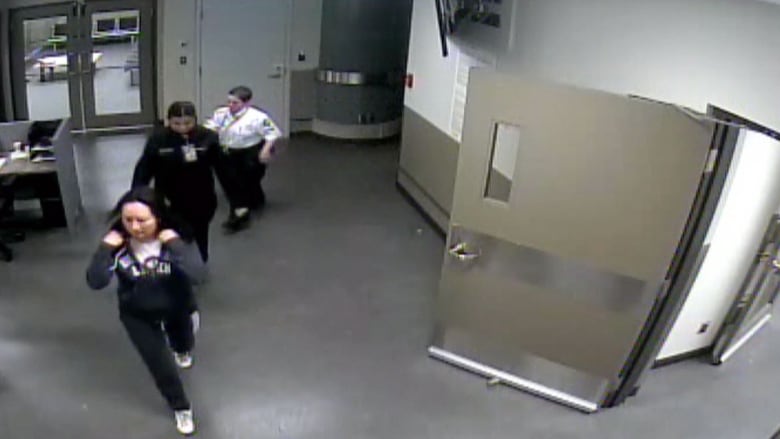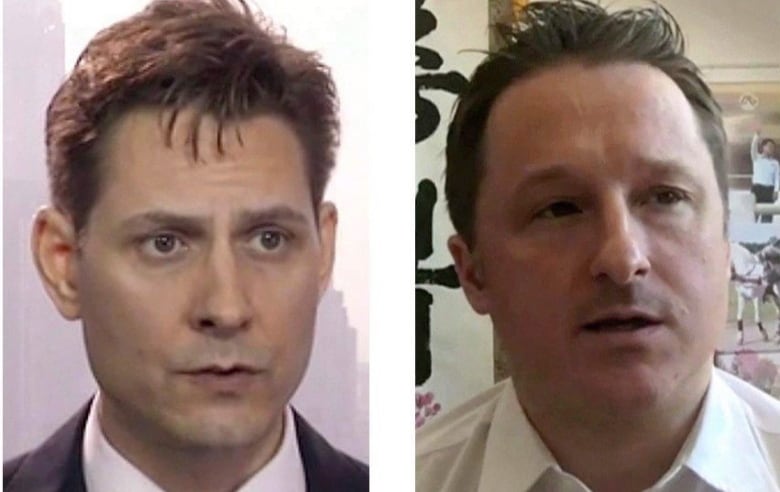
A lawyer for Canada’s attorney general says Meng Wanzhou’s defence team is ignoring basic facts of the case against their client by accusing the United States of unlawfully reaching beyond its jurisdiction to extradite the Huawei executive.
Robert Frater began his B.C. Supreme Court submissions Thursday by commending one of Meng’s lawyers for his eloquence in trying to convince Associate Chief Justice Heather Holmes to toss extradition proceedings over what they claim is a breach of international law.
But then the Crown lawyer — who is the Justice Department’s chief general counsel — gave his own assessment of the defence’s case.
“The flaws in that argument run so wide and so deep, I scarcely know where to begin,” Frater told the judge.
“I would characterize their argument as one based on denial.”
‘Not just about the lie’
Meng is the chief financial officer of Huawei and the daughter of the Chinese telecommunications giant’s billionaire founder, Ren Zhengfei.
The U.S wants her rendered to New York to face fraud and conspiracy charges related to allegations she lied to an HSBC executive in Hong Kong about Huawei’s control of a subsidiary that was accused of violating U.S. economic sanctions against Iran.

Prosecutors claim HSBC relied on Meng’s alleged misrepresentations in deciding to continue handling global financial transactions for Huawei.
Frater’s submissions came at the end of a week dedicated to an examination of the strength of the U.S. connection to the case and the country’s ability to police events beyond its borders.
Meng’s lawyers claim that since Meng is a Chinese citizen, HSBC is an Anglo-Chinese bank and the alleged lies took place in Hong Kong, it’s up to China to prosecute any wrongdoing.
They rejected the notion that the act of “clearing” money through the American financial system gives the United States jurisdiction.
But Frater claimed the defence had an “impoverished view” of the facts — which are about more than dollar clearing.
He said Meng allegedly asked for the meeting with a “nervous” banker who was concerned doing business with Huawei might put HSBC in violation of sanctions when the bank already had a deferred prosecution agreement with the U.S. for similar offences.
As such, the Crown claims HSBC faced significant penalties from U.S. authorities by agreeing to handle Huawei’s money.
“These facts must be seen through the lens of the law of fraud,” Frater said.
“Fraud is not just about the lie, it is about the risk of deprivation. The risk of economic loss. The lies in Hong Kong are not about risks in Hong Kong. They are about risks primarily in the United States.”
‘One side of a scholarly debate’
One of the central questions Holmes raised concerned the ability of an extradition judge to even consider the issue of jurisdiction.
Meng’s lawyers claim the court can’t ignore a breach of international law, but Frater said Supreme Court of Canada precedent and the Extradition Act clearly state that it’s a concern better left to Canada’s minister of justice.

“Courts have repeatedly said that your role is limited, we’ve said it a number of times to you in these hearings,” Frater said.
The defence backed up its arguments on jurisdiction with a series of affidavits from some of the world’s leading academic experts on international law and dollar clearing.
Frater told the judge she should place no weight on their opinions.
“Our position generally is that when it comes to law professors, they’re best viewed in their natural habitat, which is in the pages of law reviews,” he said. “Where you’re left is listening to one side of a scholarly debate that relies on a limited examination … and it’s insufficient.”
‘Ms. Meng would like to go home’
The arguments about international law are one of four lines of attack Meng’s lawyers have mounted in a bid to stay proceedings which began with the 49-year-old’s arrest at Vancouver’s airport on Dec. 1, 2018.
In the past month, the defence team spent weeks arguing that Meng was being used as a pawn in a political battle between the U.S. and China and that Canadian authorities violated her Charter rights at the time of arrest to mount a covert investigation for U.S. law enforcement.

The proceedings will resume on Apr. 26 for a final three-week block which will begin with defence claims that the U.S. misled Canada about the strength of its case.
The defence will also argue the cumulative effect of the various abuses of process alleged should be enough to set Meng free.
The final part of the hearing will involve the Crown making the case for Meng’s extradition based on the record of the case the U.S. has provided.
The judge isn’t allowed to test the evidence — only to decide whether it would be enough to send the matter to trial if Meng were being prosecuted in Canada. The case is expected to wrap by May 14, after which Holmes will likely reserve her judgment.
The case has seen relations between Canada and China deteriorate.
Even as Meng awaits the final phase of her journey through Canadian courts, the fate of two Canadians who were arrested in China in the days following her arrest remains unclear.
Last month, Chinese officials tried former diplomat Michael Kovrig and entrepreneur Michael Spavor behind closed doors on allegations of espionage.
No verdict has been announced and no proof has been given for the charges, which are widely believed to be retaliation for Meng’s arrest.
Meng has been living under a form of house arrest since she was released on $10 million bail in the week following her arrest. She is allowed to travel within the Lower Mainland, but is kept under constant surveillance by court-ordered security for which she pays.
One of Meng’s lawyers, Gib van Ert, had the final word at Thursday’s hearing.
“It’s an unprecedented situation,” van Ert told the judge. “There’s never been a case like this. But I assure you that we’ve all worked very hard to push this along as expeditiously as we can. Why? Because Ms. Meng would like to go home.”












